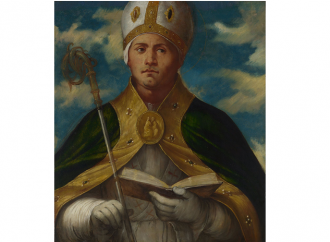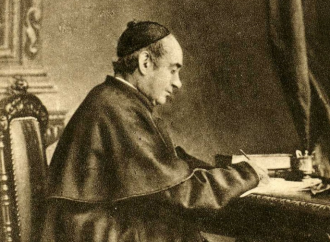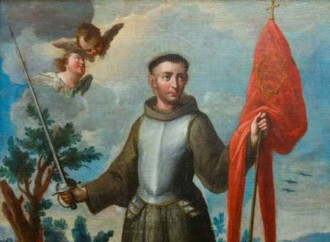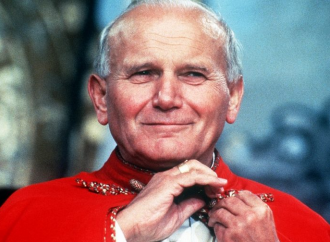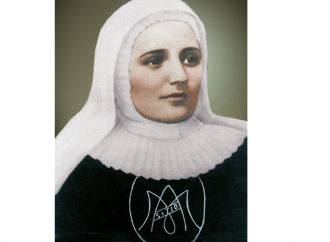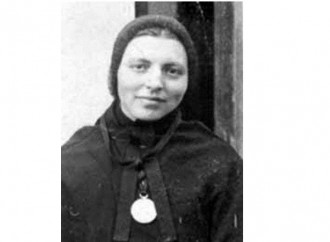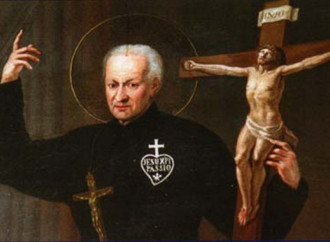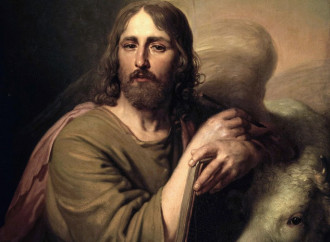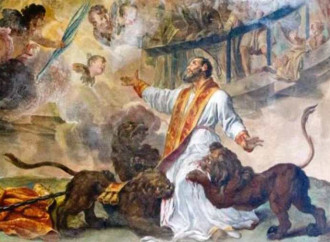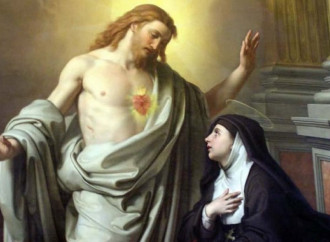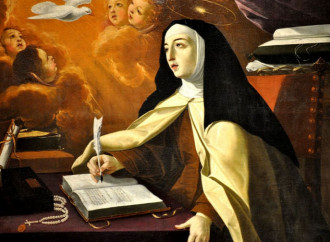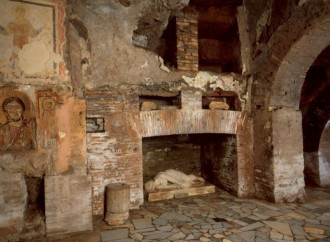Saint Gaudentius of Brescia
His clear and simple doctrine spread throughout the Christian world, so much so that he received several exhortations to write.
Saint Anthony Mary Claret
He founded the Missionary Sons of the Immaculate Heart of Mary and the Religious of Mary Immaculate. He was aware of the need for a good Catholic press. Several times Jesus and Mary confirmed the value of his writings through inner locutions.
Saint John of Capistrano
He became a friend of St Bernardine of Siena and supported both his devotion to the Most Holy Name of Jesus and the reform of the Franciscan Observance.
Saint John Paul II
Flanked by Cardinal Ratzinger, whom he put in charge of the Congregation for the Doctrine of the Faith, the Polish saint left as legacy a very rich magisterium, confirming many truths of faith and morals.
Saint Laura Montoya
God called her to the evangelization of indigenous peoples.
Saint Maria Bertilla Boscardin
Her story reminds us that every way to holiness has its charisms.
Saint Paul of the Cross
He founded the Congregation of the Discalced Clerics of the Most Holy Cross and Passion of Our Lord Jesus Christ, whose members are commonly called Passionists. The rule provides for a fourth vow which consists in propagating the memory of the Passion, from which “as from source, all good derives”.
Saint Luke the Evangelist
The third Gospel is rich in historical and geographical details, as if to underline - for the benefit of posterity - that the earthly mission of God the Son took place at precise times and places.
Saint Ignatius of Antioch
On his deportation journey from Antioch to Rome, where he was mauled to death by beasts during Trajan's persecutions, he wrote seven letters. In them the terms “Christianity” and “Catholic Church” appear for the first time.
Saint Margaret Mary Alacoque
She promoted the devotion to the Sacred Heart of Jesus and the practice of the First Fridays of the month.
Saint Teresa of Avila
She was a giant of holiness, protagonist of the Catholic Reformation thanks to intuitions and works that have not ceased to bear fruit over the centuries.
Saint Callistus I
Esteemed by two holy pontiffs (Victor I and Zephyrinus), opposed by an antipope (Hippolytus) who held two “records” in the history of the Church...
